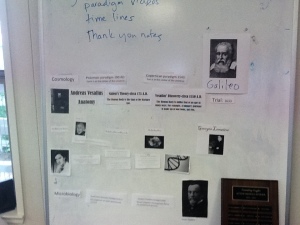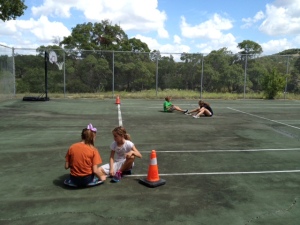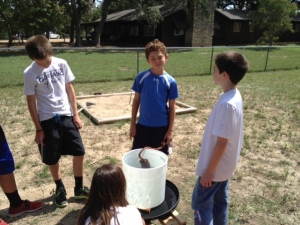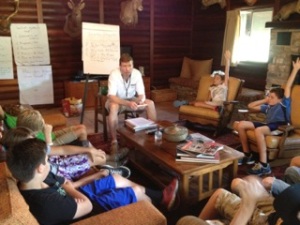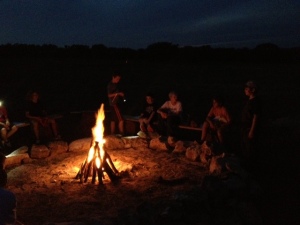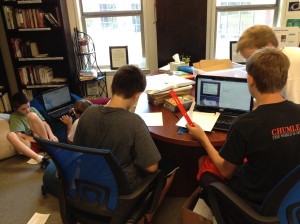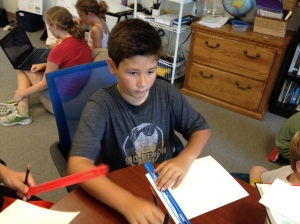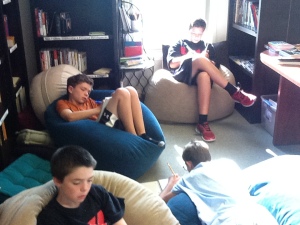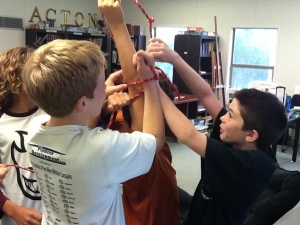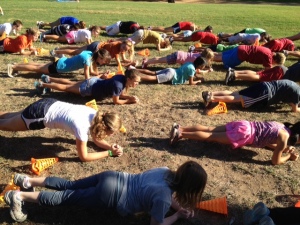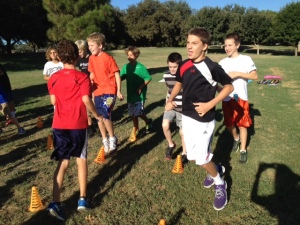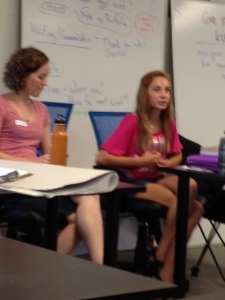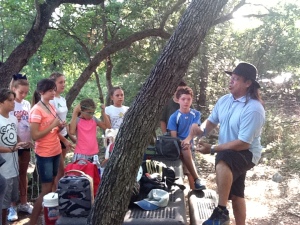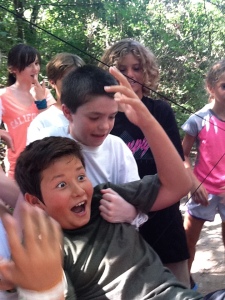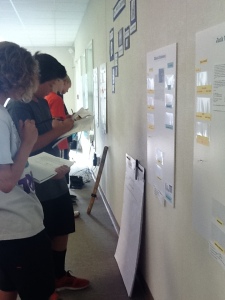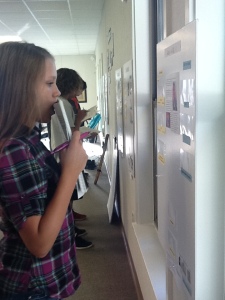“Is this really the end of the fourth week?” asked one Eagle as we packed up for the day.
“Yes, hard to believe,” I replied. “Did time go by this quickly at your old school?”
“Gosh no. School days just seemed to drag on forever.”
I remembered the words of one student, the first week of class: “Fun and hard don’t have to be opposites.” No, they don’t. Our Eagles have proved that fun and hard work can go hand and hand, when you hand the freedom and responsibility over to a class.
Our Eagles spent most of Friday finishing the last of the standardized tests, working on their MyHJ ‘Stars and Steppingstones” interview preparation and finishing up their scientific paradigm videos and time lines.
Below is a picture of the beginnings of their Paradigm timeline, which captures the fourteen paradigm shifts they’ve independently researched.
Eagles also – entirely on their own – made a list of thank you notes to write, assigned authors, and completed the letters.
Next week we begin to slow the learning rhythm in anticipation of the end of the session, launching the Galileo Trial Debate experience on Monday and continuing core skills, but otherwise beginning to synthesize the learning portfolios for Friday’s exhibition and celebration.
You see, a learning community isn’t like a factory. It’s more like a living organism, with energy lows and highs and patterns, a combination of the individual learning paths of our young flesh and blood heroes in the making. There are times to work hard, and times to slow and reflect.
As a Guide, you can lightly touch with an encouraging word and shape around the edges, but mainly you are along for a glorious ride. The sooner we Guides realize this, the better.
